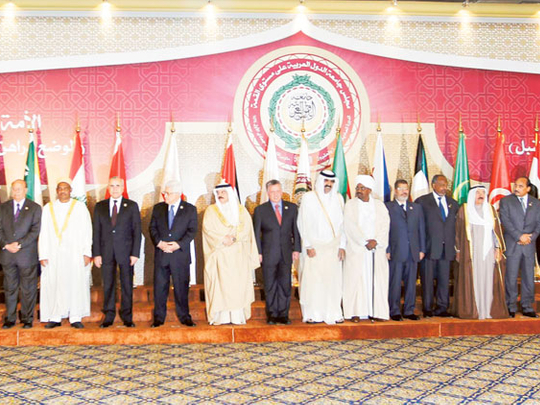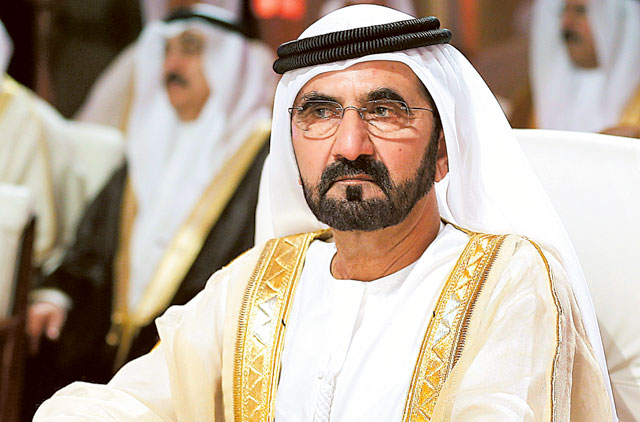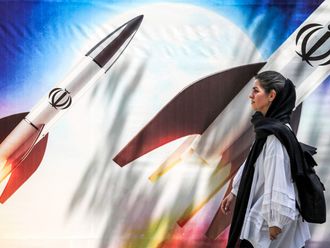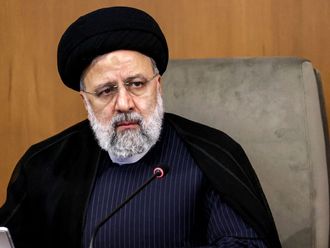
Qatar: Syrian opposition representatives took the country’s seat for the first time at an Arab League summit that opened in Qatar on Tuesday, a significant diplomatic boost for the forces fighting President Bashar Al Assad’s regime.
In a ceremonious entrance accompanied by applause, a delegation led by Muath Al Khatib, the former president of the main opposition alliance — the Western-backed Syrian National Coalition — took the seats assigned for Syria at the invitation of the Emir of Qatar, Shaikh Hamad Bin Khalifa Al Thani, who chairs the two-day summit.
The decision for the opposition to take Syria’s seat was made at the recommendation of Arab foreign ministers meeting earlier this week in the Qatari capital, Doha.
The Arab League in 2011 suspended the Syrian government’s membership in the organisation in punishment for the regime’s crackdown on opponents. The diplomatic triumph, however, could not conceal the disarray within the top ranks of the Syrian opposition.
Besides Al Khatib, the Syrian delegation included Gassan Hitto, recently elected prime minister of a planned interim government to administer rebel-held areas in Syria, and two prominent opposition figures, George Sabra and Suheir Atassi.
Addressing the gathering, Al Khatib thanked the Arab League for granting the seat to the opposition. “It is part of the restoration of legitimacy that the people of Syria have long been robbed of,” he said.
Al Khatib lamented the inaction of several foreign governments, which he did not name, towards the Syrian crisis and spoke emotionally of the suffering of the civilians in his country.
“I convey to you the greetings of the orphans, widows, the wounded, the detained and the homeless,” he told the gathering in an opulent hall in the Qatari capital. He also defended the presence in Syria of foreign jihadis, saying the militants were there to help defend a people under attack but added that those needed more by their families in their own countries should leave.
“Is it the beards or the fact that they are foreigners?” he asked, referring to concern in the West and elsewhere that hardline Islamic fighters are at the forefront of the fight against the Syrian regime.
“Why is no one saying anything about the Iranian and Russian advisers and Hezbollah?” he asked, alluding to opposition claims that the Syrian regime’s main allies are directly involved in the fighting.
Even as rebel fighters gain more territory on the ground in their fight against Al Assad’s troops, their mostly exile political leadership has been thrown into disarray.
Al Khatib announced his resignation on Sunday because of what he described as restrictions on his work and frustration with the level of international aid for the opposition. The coalition rejected the resignation and Al Khatib said he would discuss the issue later and represent the opposition at the Qatar summit “in the name of the Syrian people”.
Also, Hitto’s election as the head of the interim government was rejected by the opposition’s military office, which said he was not a consensus figure. Some members have accused Qatar and the Muslim Brotherhood of imposing their will on the Coalition.
In Damascus, the government on Tuesday blasted the Arab League’s move to allow the opposition to take its seat at the Doha summit, portraying it as a selling-out of Arab identity to please Israel and the United States.
“The Arab League has blown up all its charters and pledges to preserve common Arab security, and the shameful decisions it has taken against the Syrian people since the beginning of the crisis and until now have sustained our conviction that it has exchanged its Arab identity with a Zionist-American one,” said an editorial in the Al Thawra newspaper, a government mouthpiece.
“The Syrians are fully aware that this is not a summit of the Arabs, and Arabism means nothing without Syria,” it said, adding that recognising the opposition “legitimises terrorist acts that are committed overtly and blatantly against the Syrians, their institutions and properties”.
The Syrian government says the conflict is an international conspiracy to weaken Syria being carried out by terrorists on the ground.
Addressing the summit, Arab League chief Nabeel Al Arabi warned that the Syrian conflict would have “grave repercussions” on the whole region and blamed the Syrian regime for the failure to end the strife.
A “political settlement of the Syrian crisis is the choice that should be undertaken”, he said. The crisis began in March 2011 with protests demanding Al Assad’s ouster. With a harsh government crackdown, the uprising steadily grew more violent until it became a full-fledged civil war. The United Nations estimates that more than 70,000 people have died so far in the conflict.











